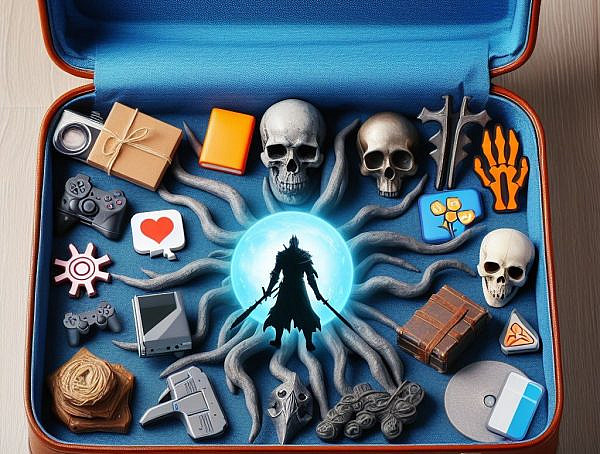Research suggests that avatar identification can be a stepping stone towards online game addiction.
Sukkyung You, Euikyung Kim, and Donguk Lee’s research paper “Virtually Real: Exploring Avatar Identification in Game Addition Among Massively Multiplayer Online Role-Playing Games (MMORPG) Players” published in Games and Culture in 2017 focuses on the link between psychological factors and online game addiction. It expands upon previous research into online game addiction that identified three psychosocial characteristics related to game addiction: depression, social skills, and self‑esteem. The main aim of the study was to examine the significance of avatar identification as a mediating condition for addiction.
The MMORPG genre was chosen as the object of the study specifically because of its emphasis on avatar creation and development in a society populated by other avatars, and because MMORPG players face the highest risk of addiction. Data for the study was collected in 2011 from third‑year South Korean middle school students in a medium‑sized city. A questionnaire was distributed among the students and the final sample included 163 completed surveys from 71 males and 92 females who listed MMORPGs as their preferred videogame genre. The majority estimated their MMORPG playtime during weekdays to be between 1-2 hours, with 4% estimating 5 hours or more. On weekends, only about half of the players estimated their playtime at only 1-2 hours daily and 15% of players said they play for over 5 hours a day.
The questionnaire included numerical scales for evaluation of one’s self‑esteem, depression, interpersonal communication skills, avatar identification, and game addiction. The students were asked to rate statements such as “cursing on my avatar means cursing on me” or “my grades went down after I started playing online video games” depending on the extent to which they agreed with the statement. All answers were then summed up to create a total score. Higher scores indicated a higher level of game addiction. Correlation analysis was then performed on the scores.
The results showed that players with low self‑esteem and a lack of social skills identified with their avatars more, and exhibited more signs of game addiction. Players with a higher level of depression also experienced deeper avatar identification and game addiction. The level of avatar identification was found to have a positive correlation with game addiction, meaning that adolescents who believe their avatar to be their alter ego or a version of themselves are more likely to develop a (potentially unhealthy) attachment to the avatar’s world. These findings correspond with previous studies and suggest that, for example, since players are able to create an idealized version of themselves in MMORPGs, those with low self‑esteem are especially drawn to the games, which make them place more value on themselves. The results also showed significant internal consistency among the respondents.

Relationships between psychosocial factors and game addition. Bold lines indicate significant correlation, dotted lines less significant. (Image taken from the original article.)
Avatar identification was confirmed to be a mediator between depression and game addiction, suggesting that a relationship between depression and game addiction occurs only when the player identifies with their avatar. Depressive players are not at a higher risk of game addiction by default, but they are more likely to strongly identify with their avatar, which is a stepping stone towards addiction. Avatar identification was also found to be a partial mediator between game addiction and social skills. Adolescents with low social skills were found to be more likely to experience game addiction as well as avatar identification, which may in turn lead to addiction.
One limitation of the study was the small scope of its demographic of only a relatively small sample of South Korean middle school students. Further research could examine the relationships between psychosocial factors and game addiction in different age groups. Furthermore, the responses used in the study were self‑assessed, raising questions about their reliability. Nonetheless, the results provide meaningful information that can be used to develop programs to prevent or combat game addiction in adolescents.
Original Article: “Virtually Real: Exploring Avatar Identification in Game Addition Among Massively Multiplayer Online Role-Playing Games (MMORPG) Players”
Authors: Sukkyung You, Euikyung Kim, and Donguk Lee
Published: Games and Culture, vol. 12, January 2017
Original article accessible from https://doi-org.helios.uta.fi/10.1177/1555412015581087
You might also like
More from Game Research Highlights
How do you want to do this? – A look into the therapeutic uses of role-playing games
Can playing RPGs contribute positively to your wellbeing? A recent study aims to find out how RPGs are being used …
Eldritch horrors and tentacles – Defining what “Lovecraftian” is in games
H.P. Lovecrafts legacy lives today in the shared world of Cthulhu Mythos and its iconic monsters. Prema Arasu defines the …
Are Souls Games the Contemporary Myths?
Dom Ford’s Approaching FromSoftware’s Souls Games as Myth reveals the Souls series as a modern mythology where gods fall, desires …
















